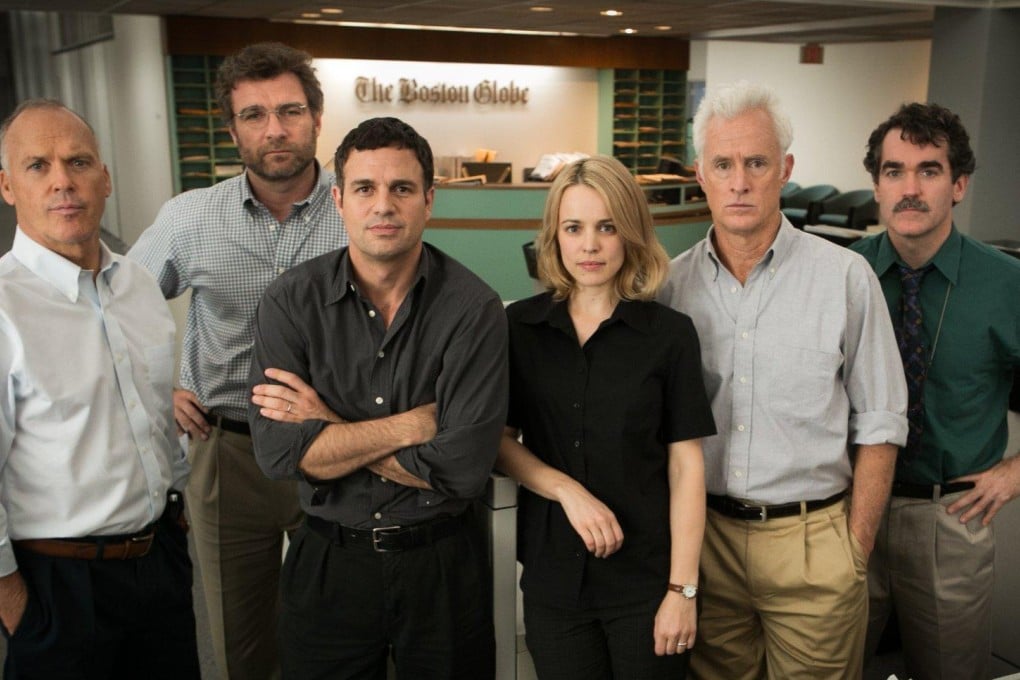Why investigative journalism matters and how it's best done: Spotlight film tells all
Story based on the Boston Globe investigation that uncovered the facilitation of child abuse by the Catholic Church dissects the news media's watchdog role, writes Roy J. Harris Jnr

The best lessons about how journalists work come from seeing them in action. And no film has ever done a better job than of showing reporters and editors in their "watchdog" role: digging out important news that others want kept secret.
The film tells the story of four members of 's investigative unit, the Spotlight team, and follows what happens after the newspaper's editor, on his first day on the job, in 2001, tasks them with looking into the case of a defrocked Catholic priest who had been repeatedly accused of sexually abusing children in his care. This leads them to investigate whether church leaders in Boston, in the northeastern United States, knew about the abuse by that priest and by others - and protected them by quietly transferring them to new parishes, where they were free to harm other children.
SEE ALSO: Pope Francis says 2pc of Catholic priests are sex abusers
Because the did its job so well - eventually documenting shockingly widespread abuses by priests and the cover-up by the Boston Archdiocese of a pervasive problem - offers many lessons about the way news organisations can have a positive impact in their communities and beyond. (The won the Pulitzer Prize for Public Service in 2003 for this work.) It is also rich in news literacy teachable moments.
The film's biggest lesson is that bringing about truly significant societal change requires courage, risk-taking and a willingness to upset powerful people and institutions.
This process begins on July 30, 2001, when Martin Baron, only recently arrived in Boston, leads his first news meeting as editor of the .
In a way, that meeting feels a bit like the first day of school. Lower-ranking editors nervously listen as an unfamiliar leader at the front of the room introduces himself and asks them to describe what their reporters are working on. Then Baron mentions a column, published the day before, about a lawsuit against a defrocked priest in which the documents had been "sealed" (made private by a court order). When he issues a challenge - urging the group to fight that confidentiality order and pursue a story likely to anger the powerful leadership of the Catholic Church - there's both excitement and uneasiness.
